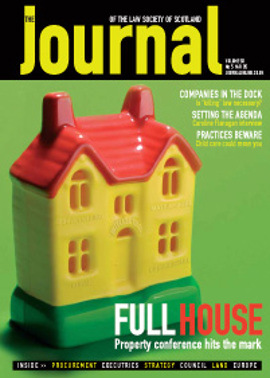When is a cost not an expense?

It is time to return to the continuing flow of court decisions. The issue of what is payable as an expense of administration has recently been considered in a number of cases; one dealing with employees is likely to have far-reaching implications for the conduct of administrations under the provisions introduced by the Enterprise Act 2002.
In Allders Department Stores [2005] EWHC 172 (Ch), Lawrence Collins J decided on 16 February 2005 that employee claims for redundancy payment or unfair dismissal compensation constituted expenses of the administration. Allders’ administrators had adopted various employment contracts and then terminated them. Schedule B1, paragraph 99(5) to the Insolvency Act 1986 (inserted by the Enterprise Act) is read as meaning that administrators are deemed to adopt the wages or salary liability due under contracts of employment after 14 days have elapsed from commencement of the administration. This means that these are to be paid in priority over all other expenses of the administration. Paragraph 99(6) provides that “wages or salary” also includes monies due in respect of illness, holiday entitlement and contributions to an occupational pension scheme. In Allders, the Crown argued that redundancy and unfair dismissal payments constituted “necessary disbursements” as defined in rule 2.67(1)(f) of the (English) Insolvency Rules 1986, as amended. This deals with the order of priority of the payment of administration expenses, and acceptance of the Crown position would have given these payments a priority over administrators’ remuneration, tax on chargeable gains on administrators’ realisations, and remuneration of those employed by the administrators.
Lawrence Collins J held that redundancy or unfair dismissal payments did not fall within “wages or salary” in paragraph 99(5), and therefore did not have what might be described as super priority. The court then held that redundancy and unfair dismissal payments could not be considered “necessary disbursements” for the purposes of rule 2.67(1)(f), as this would directly conflict with the preferential status of employees’ claims given in schedule 6 to the Insolvency Act 1986. The Scottish provisions (in rule 4.67 of the (Scottish) Insolvency Rules 1986) are worded differently, but it is thought a similar approach would be taken in the Scottish courts, leaving employee claims to be treated as preferential creditors.
In the meantime the Court of Appeal has concluded in Centre Reinsurance International Co v Freakley [2005] EWCA Civ 115 that claims-handling expenses paid other than by the administrators (in this case by the reinsurers in the exercise of rights transferred to them under a reinsurance policy) are to be treated as an administration expense. This means that liabilities that are not in fact incurred by administrators (but would have been properly incurred if they had incurred them) are to be treated as expenses. This potentially widens the category of expenses quite considerably, and it might well be argued that this is a step too remote from the traditional categories of expense. It is understood that an appeal by the administrators to the House of Lords is being considered.
In GP Stores Ltd (unreported), the administrator had traded the company at a loss, which meant there were insufficient realisations to allow payment of all the expenses authorised by him. The company subsequently went into liquidation. There was a conflict between the expenses of the administration which were payable in priority to secured creditors, as against the costs of the liquidator which could not be paid in priority from assets secured in favour of floating chargeholders. Since most of the assets were subject to a floating charge, and following Leyland DAF [2004] 2 AC 298 did not constitute “free assets” available to the liquidator, the question which arose was how the liquidator was to be paid.
The court came to the rescue by applying the doctrine set out in Berkeley Applegate (1998) 5 BCC 803. This doctrine arose when the insolvent company assets were subject to a trust and the officeholder needed to undertake work for the benefit of the beneficiaries, but there were insufficient “free assets” to fund that work. The court allowed the officeholder to fund this work from the trust assets. Applying this doctrine in GP Stores, the court ordered that the liquidator’s costs in relation to realising the assets, investigating the administration expenses and paying a dividend should first be deducted from any “free assets” and then from the proceeds of sale of the charged assets.
Finally, by the time you read this, the House of Lords is likely to have determined the appeal in Re Spectrum Plus Ltd, and hopefully brought an end to the ongoing debate in England and Wales about whether a standard form bank debenture can create an effective fixed charge over book debts. Practitioners can look forward to seeing a great deal of comment on this decision.
Alistair Burrow, Tods Murray LLP
In this issue
- Leaving on a high
- The JAB: why it isn't working
- One house, many rooms
- Bad company
- Tender and true
- Beware the pitfalls
- Alien investors in the US
- Budgeting and beyond
- Let's play tag
- Same old story
- Getting the message across
- Council life
- Should the party pay?
- Unintended effects?
- A fine Profile
- Public benefit?
- The appeal of leave
- When is a cost not an expense?
- Website reviews
- Book reviews
- What a waste!
- How safe are your titles?






